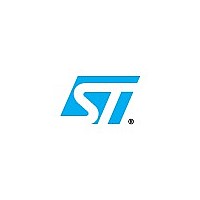ST10F269-DPR STMicroelectronics, ST10F269-DPR Datasheet - Page 99

ST10F269-DPR
Manufacturer Part Number
ST10F269-DPR
Description
MCU 16BIT 256K FLASH 144PQFP
Manufacturer
STMicroelectronics
Series
ST10r
Datasheet
1.ST10F269DTR3.pdf
(160 pages)
Specifications of ST10F269-DPR
Core Processor
ST10
Core Size
16-Bit
Speed
40MHz
Connectivity
CAN, EBI/EMI, SSC, UART/USART
Peripherals
POR, PWM, WDT
Number Of I /o
111
Program Memory Size
256KB (256K x 8)
Program Memory Type
FLASH
Ram Size
12K x 8
Voltage - Supply (vcc/vdd)
4.5 V ~ 5.5 V
Data Converters
A/D 16x10b
Oscillator Type
Internal
Operating Temperature
0°C ~ 70°C
Package / Case
144-BFQFP
Lead Free Status / RoHS Status
Lead free / RoHS Compliant
Eeprom Size
-
Available stocks
Company
Part Number
Manufacturer
Quantity
Price
Company:
Part Number:
ST10F269-DPR
Manufacturer:
STMicroelectronics
Quantity:
10 000
16 - REAL TIME CLOCK
The Real Time Clock is an independent timer,
which clock is directly derived from the clock
oscillator on XTAL1 input so that it can keep on
running even in Idle or Power down mode (if
enabled to). Registers access is implemented
onto the XBUS. This module is designed for the
following purposes:
– Generate the current time and date for the system
– Cyclic time based interrupt, provides Port
– 58-bit timer for long term measurement
– Capable to exit the ST10 chip from power down
The real time clock is base on two main blocks of
counters. The first block is a prescaler which
generates a basic reference clock (for example a
1 second period). This basic reference clock is
coming out of a 20-bit DIVIDER (4-bit MSB
RTCDH counter and 16-bit LSB RTCDL counter).
This 20-bit counter is driven by an input clock
derivated from the on-chip high frequency CPU
clock, predivided by a 1/64 fixed counter (see
Figure 51). This 20-bit counter is loaded at each
basic reference clock period with the value of the
Figure 50 : ESFRs and Port Pins Associated with the RTC
Figure 51 : RTC Block Diagram
2 external interrupts every second and every
n seconds (n is programmable) if enabled.
mode (if PWDCFG of SYSCON set) after a pro-
grammed delay.
EXISEL External Interrupt Source Selection register (Port 2)
1 second timed interrupt request (RTCSI) triggers firq[2] and alarm interrupt request (RTCAI) triggers firq[3]
RTC data and control registers are implemented onto the XBUS.
-
-
-
-
-
Programmable ALARM Register
- - - Y Y Y Y - - - -
EXISEL
RTCH
RTCAH
32 bit COUNTER
AlarmIT
=
RTCAL
RTCL
RTCAI RTCSI
RTCCON
Basic Clock IT
Programmable PRESCALER Register
20-bit PRESCALER register (4-bit MSB RTCPH
register and 16-bit LSB RTCPL register). The
value of the 20-bit RTCP register determines the
period of the basic reference clock.
A timed interrupt request (RTCSI) may be sent on
each basic reference clock period. The second
block of the RTC is a 32-bit counter (16-bit RTCH
and 16-bit RTCL). This counter may be initialized
with the current system time. RTCH/RTCL counter
is driven with the basic reference clock signal. In
order to provide an alarm function the contents of
RTCH/RTCL counter is compared with a 32-bit
alarm register (16-bit RTCAH register and 16-bit
RTCAL register). The alarm register may be
loaded with a reference date. An alarm interrupt
request (RTCAI), may be generated when the
value of RTCH/RTCL counter matches the
reference date of RTCAH/RTCAL register.
The timed RTCSI and the alarm RTCAI interrupt
requests can trigger a fast external interrupt via
EXISEL register of port 2 and wake-up the ST10
chip when running power down mode. Using the
RTCOFF bit of RTCCON register, the user may
switch off the clock oscillator when entering the
power down mode.
Reload
-
RTCPH
RTCDH
-
20 bit DIVIDER
-
-
-
RTCPL
RTCDL
- - - Y Y Y Y Y Y Y Y
CCxIC
Clock Oscillator
/64
ST10F269
99/160













